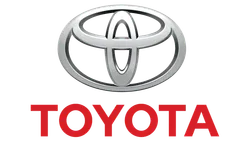

Toyota News Summary - January 2025
Stay updated with the latest Toyota news summary for January 2025. Discover all the exciting developments and updates related to Toyota and its innovations.
Toyota News Summary - January 2025
Mycarro AI
Feb 1, 2025
New Electric Vehicle Launches
In January 2025, Toyota officially launched its latest lineup of electric vehicles (EVs), showcasing its commitment to sustainability and innovation. The new models, including the Toyota bZ4X and an updated version of the Toyota RAV4 EV, emphasize the brand’s focus on reducing carbon emissions and meeting the growing demand for electric options among consumers. The bZ4X, in particular, features advanced battery technology that allows for a longer range and faster charging times, catering to the evolving needs of electric vehicle buyers.
Strategic Partnerships for Battery Development
Toyota also announced the establishment of new strategic partnerships aimed at enhancing its electric vehicle battery technology. Collaborating with key players in the battery manufacturing industry, the company is exploring advanced solid-state battery technology, which promises improvements in energy density and safety over traditional lithium-ion batteries. This initiative is part of Toyota's broader goal to bolster its EV capabilities and maintain competitiveness in an increasingly crowded market.
Hybrid and Hydrogen Fuel Cell Expansion
While focusing on electric vehicles, Toyota continues to invest in hybrid and hydrogen fuel cell technologies. In January, the company shared updates on its plans to expand production of hybrid vehicles, which still play a significant role in Toyota's overall strategy. Additionally, recent developments in hydrogen fuel cell technology were discussed, including pilot projects to integrate hydrogen infrastructure within urban settings. These efforts align with Toyota’s vision of a multi-faceted approach to environmentally friendly transportation solutions.
Commitment to Circular Economy
Toyota's commitment to sustainability extends beyond just vehicles; the brand is also taking steps towards a circular economy. In January, Toyota announced initiatives aimed at reducing waste in its manufacturing processes and increasing the use of recyclable materials in its vehicles. The company's focus on sustainability reflects a broader industry trend, as automakers aim to minimize their environmental impact and promote the responsible use of resources throughout the lifecycle of their vehicles.
Strengthening Global Presence
The month also saw Toyota reaffirming its commitment to strengthening its global presence. In response to the increased demand for EVs in various markets, the company is evaluating potential manufacturing expansions in regions like North America and Southeast Asia. This move is intended to localize production and reduce supply chain dependencies while also supporting job creation in the areas surrounding its manufacturing plants.
Customer Engagement and Feedback
Finally, Toyota has launched several initiatives to enhance customer engagement and gather feedback on its new models. Via social media platforms and community events, the company aims to create ongoing dialogues with customers to better understand their needs and preferences. This level of interaction is seen as crucial for ensuring that Toyota remains aligned with consumer expectations, particularly in an era of rapid technological change within the automotive industry.
In summary, January 2025 marked a month of significant developments for Toyota, as the company focused on electric vehicles, battery innovation, sustainability, and customer engagement. With these efforts, Toyota continues to position itself as a leader in the automotive industry while addressing current environmental and market challenges.